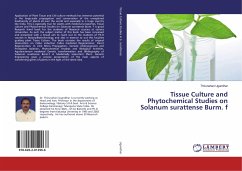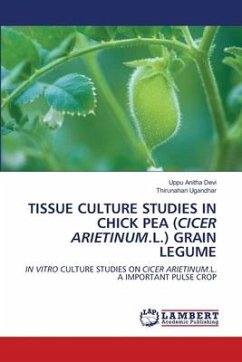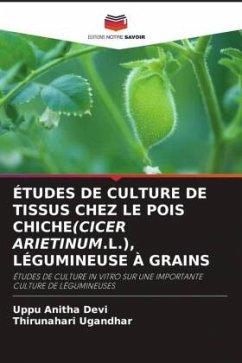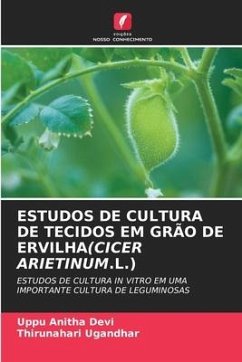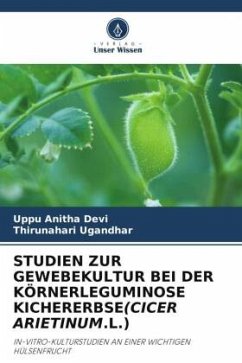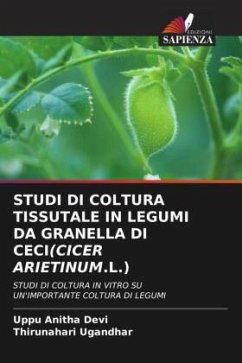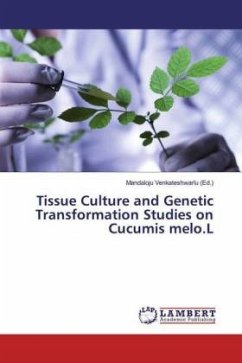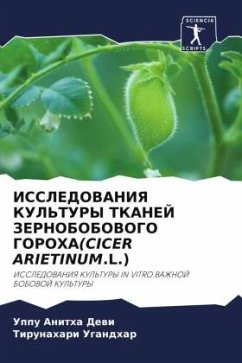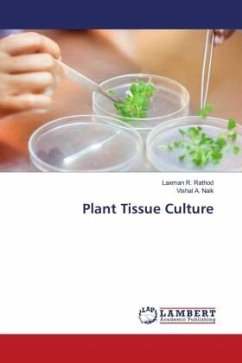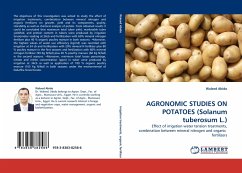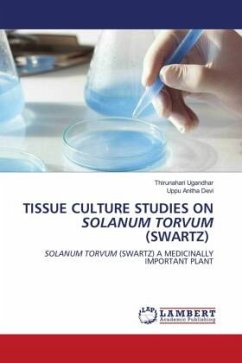
TISSUE CULTURE STUDIES ON SOLANUM TORVUM (SWARTZ)
SOLANUM TORVUM (SWARTZ) A MEDICINALLY IMPORTANT PLANT
Versandkostenfrei!
Versandfertig in 6-10 Tagen
53,99 €
inkl. MwSt.

PAYBACK Punkte
27 °P sammeln!
Solanum torvum (Swartz) plants were tested for callus induction, callus-mediated regeneration, direct regeneration, micropropagation, somatic embryogenesis, and protoplast isolation. Below are the work's principal results. To create a callusing protocol for hypocotyl, cotyledon, and leaf explants on a growth regulator-containing medium. Standardize callus-mediated regeneration on varied growth regulator concentrations and combinations. To examine the influence of growth ingredient concentrations and combinations on in vitro plantlet regeneration in leaf and cotyledon explants. Shoo the tip and...
Solanum torvum (Swartz) plants were tested for callus induction, callus-mediated regeneration, direct regeneration, micropropagation, somatic embryogenesis, and protoplast isolation. Below are the work's principal results. To create a callusing protocol for hypocotyl, cotyledon, and leaf explants on a growth regulator-containing medium. Standardize callus-mediated regeneration on varied growth regulator concentrations and combinations. To examine the influence of growth ingredient concentrations and combinations on in vitro plantlet regeneration in leaf and cotyledon explants. Shoo the tip and nodal explants from 30-day-old seedlings induced numerous shoots. Solanum torvum leaf explants somatic embryogenesis and plantlet development. Explants from 30-day-old seedlings planted in glass bottles generated more numerous shoots (8.0/explant) than those grown in glass tubes. In vitro shoots rooted in MS medium with 2.0 mg/L IAA/IBA. After greenhouse hardening, 95% of tissue-culture plantlets survived. Rooted shoots survived (92%) greenhouse hardening and matured (100%) in the field. Leaf explants isolate high amounts of protoplast.



